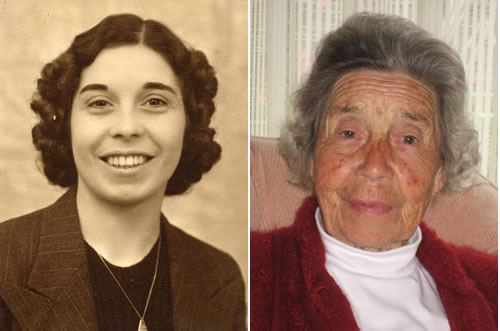Riria Utiku remembers the war at home
Riria Utiku (Ngāti Tama, Te Āti Awa) was born in Wellington in 1916. In 1941 she married Rangi Utiku (Ngāti Raukawa, Ngāti Tūwharetoa). In early January 1942 the government assumed greater powers over people’s working lives. For the first time in the country’s history, the freedom to work where you chose no longer existed. A new word came into common usage – manpower. Throughout New Zealand, thousands of workers were directed wherever they were needed. Rangi, turned down for the army because of his health, soon found himself directed to work at a poultry farm. Even for women, the term ‘manpowered’ became part of everyday conversation. At first, the government was reluctant to make women do work that was not the traditionally domestic, but over the next two years women were sent to jobs in factories, in transport and on the land – doing what had been almost exclusively men’s work. When manpower regulations began, married women like Riria did not have to register for paid work. But by the end of 1943 more hands were needed and, like their single sisters, married women could now be directed into jobs. Riria managed to get work at the Department of Native (Maori) Affairs instead of the factory work offered, while Hinga was manpowered to be a conductor on the trams.
In this extract Riria recalls that in addition to being manpowered her sister was not allowed to keep her Māori name:
Transcript
Riria Utiku: Hinga got manpowered, some part of the – I don't know how long, after she was married, and she got manpowered, into the, to be a conductor on the trams and she was not allowed to take her Maori name. She had to go back to Walker [her family name]. And I meant to tell you that.
Interviewer: Did she?
Riria Utiku: Because you asked me if there was any discrimination. Well I mean that was…
Interviewer: But she was actually Mrs Timiha at that stage?
Riria Utiku: Yes, yes, she'd got married.
Interviewer: But did she have to call herself Mrs Walker, or Miss Walker. Was that because they wouldn’t let Maori women on the trams?
Riria Utiku: Wouldn't know, wouldn't know.
Interviewer: But she wasn’t allowed to use her married name? What did she think about it?
Riria Utiku: Well I think she would have blown up a bit.
Interviewer: What did you think about it?
Riria Utiku: Well, it's just another way of, we've often said well, there are discriminations, there are. And you can't get away from it.

Riria Utiku, about 1937 and at home in 2007.

Community contributions